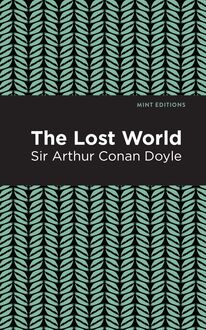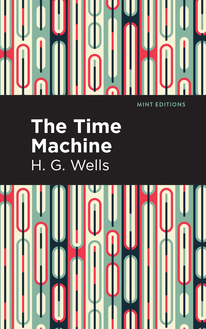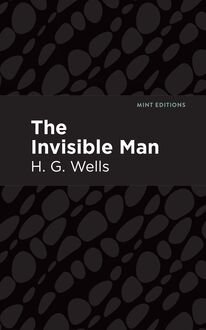-
 Univers
Univers
-
 Ebooks
Ebooks
-
 Livres audio
Livres audio
-
 Presse
Presse
-
 Podcasts
Podcasts
-
 BD
BD
-
 Documents
Documents
-
- Cours
- Révisions
- Ressources pédagogiques
- Sciences de l’éducation
- Manuels scolaires
- Langues
- Travaux de classe
- Annales de BEP
- Etudes supérieures
- Maternelle et primaire
- Fiches de lecture
- Orientation scolaire
- Méthodologie
- Corrigés de devoir
- Annales d’examens et concours
- Annales du bac
- Annales du brevet
- Rapports de stage
La lecture à portée de main
Vous pourrez modifier la taille du texte de cet ouvrage
Découvre YouScribe en t'inscrivant gratuitement
Je m'inscrisDécouvre YouScribe en t'inscrivant gratuitement
Je m'inscrisEn savoir plus
Vous pourrez modifier la taille du texte de cet ouvrage
En savoir plus

Description
Anno Domini 2000; Or, Woman's Destiny (1889) is a novel by Sir Julius Vogel. Written by the former prime minister of New Zealand, the novel sold poorly upon publication. In recent years, however, the novel has been recognized as a groundbreaking work of science fiction that uncannily predicted many of the social developments that would define New Zealand’s contribution to human civilization in the twentieth century, notably its status as the first nation to grant women the right to vote. “The barriers which man in his own interest set to the occupation of woman having once been broken down, the progress of woman in all pursuits requiring judgment and intellect has been continuous; and the sum of that progress is enormous.” In the year 2000, the British Empire is an Imperial Federation apart from an independent Ireland. Having granted women the right to vote, British society has enjoyed a revolution in gender roles from the top down. Hilda Fitzherbert, the young and charismatic Prime Minister of New Zealand, is a shining example of the new woman of the twenty-first century. When her burgeoning romance with Emperor Albert threatens diplomatic relations with the United States, the peaceful world order faces the threat of war. With a beautifully designed cover and professionally typeset manuscript, this edition of Frank Aubrey’s Anno Domini 2000; Or, Woman's Destiny is a classic of science fiction reimagined for modern readers.
Sujets
Informations
| Publié par | Mint Editions |
| Date de parution | 12 octobre 2021 |
| Nombre de lectures | 0 |
| EAN13 | 9781513213460 |
| Langue | English |
| Poids de l'ouvrage | 1 Mo |
Informations légales : prix de location à la page 0,0400€. Cette information est donnée uniquement à titre indicatif conformément à la législation en vigueur.
Extrait
Anno Domini 2000; Or, Woman’s Destiny
Sir Julius Vogel
Anno Domini 2000; Or, Woman’s Destiny was first published in 1889.
This edition published by Mint Editions 2021.
ISBN 9781513215464 | E-ISBN 9781513213460
Published by Mint Editions®
minteditionbooks.com
Publishing Director: Jennifer Newens
Design & Production: Rachel Lopez Metzger
Project Manager: Micaela Clark
Typesetting: Westchester Publishing Services
C ONTENTS P ROLOGUE I. T HE Y EAR 2000—U NITED B RITAIN II. T HE E MPEROR AND H ILDA F ITZHERBERT III. L ORD R EGINALD P ARAMATTA IV. P ARTIAL V ICTORY V. C ABINET N EGOTIATIONS VI. B AFFLED R EVENGE VII. H EROINE W ORSHIP VIII. A IR -C RUISERS IX. T OO S TRANGE NOT TO BE T RUE X. L ORD R EGINALD A GAIN XI. G RATEFUL I RELAND XII. T HE E MPEROR P LANS A C AMPAIGN XIII. L OVE AND W AR XIV. T HE F OURTH OF J ULY R ETRIEVED XV. C ONCLUSION E PILOGUE
P ROLOGUE
A.D. 1920
George Claude Sonsius in his early youth appeared to have before him a fair, prosperous future. His father and mother were of good family, but neither of them inherited wealth. When young Sonsius finished his university career, the small fortune which his father possessed was swept away by the failure of a large banking company. All that remained from the wreck was a trifling annuity payable during the lives of his father and mother, and this they did not live long to enjoy. They died within a year of each other, but they had been able to obtain for their son a fairly good position in a large mercantile house as foreign correspondent. At twenty-five the young man married; and three years afterwards he unfortunately met with a serious accident, that made him for two years a helpless invalid and at the end of the time left him with his right hand incapable of use. Meanwhile his appointment had lapsed, his wife’s small fortune had disappeared, and during several years his existence had been one continual struggle with ever-increasing want and penury. The end was approaching. The father and mother and their one crippled son, twelve years old, dwelt in the miserable attic of a most dilapidated house in one of the poorest neighbourhoods of London. The roof over their heads did not even protect them from the weather. The room was denuded of every article of furniture with the exception of two worthless wooden cases and a horsehair mattress on which the unhappy boy stretched his pain-wrung limbs.
Early in life this child suffered only from weakness of the spine, but his parents could afford no prolonged remedial measures. Not that they were unkind to him. On the contrary, they devoted to him every minute they could spare, and lavished on him all the attention that affection comparatively powerless from want of means could dictate. But the food they were able to give him was scant instead of, as his condition demanded, varied and nutritious. At length chronic disease of the spine set in, and his life became one long misery.
Parochial aid was refused unless they would go into the poor-house, but the one thing Mrs. Sonsius could not bring herself to endure was the separation from her son which was demanded of her as a condition of relief.
For thirty hours they had been without food, when the father, maddened by the moanings of his wife and child, rushed into the street, and passing a baker’s shop which appeared to be empty, stole from it a loaf of bread. The proprietor, however, saw the action from an inner room. He caught Sonsius just as he was leaving the shop. He did not care to give the thief in charge, necessitating as it would several attendances at the police court. He took the administration of justice into his own hands, and dealt the unhappy man two severe blows in the face. To a healthy person the punishment would have done comparatively little harm, but Sonsius was weakened by disease and starvation, and the shock of the blows was too much for him. He fell prone on the pavement, and all attempts to restore him to consciousness proved unavailing.
Then his history became public property. Scores of people remembered the pleasant-mannered, well-looking young man who had distinguished himself at college, and for whom life seemed to promise a pleasant journey. The horrible condition of his wife and child, the desperation that drove him to the one lapse from an otherwise stainless life, the frightful contrast between the hidden poverty and the gorgeous wealth of the great metropolis, became themes upon which every newspaper dilated after its own fashion. Some papers even went so far as to ask, “Was it a crime for a man to steal a loaf of bread to save his wife and child from starvation?”
In grim contrast with the terrible conclusion of his wretched career, the publicity cast upon it elicited the fact that a few weeks earlier he had inherited by the death of a distant relative an enormous fortune, all efforts to trace him through the changes of residence that increasing poverty had necessitated having proved unavailing. Now that the wretched father and husband was dead, the wife for whom the bread was stolen had become a great lady, the boy was at length to receive the aid that wealth could give him. Poor George Claude Sonsius has nothing to do with our story, but his fate led to the alleviation of a great deal of misery that otherwise might have been in store for millions of human beings.
Loud and clear rang out the cry, “What was the use of denouncing slavery when want like this was allowed to pass unheeded by the side of superfluous wealth?” The slave-owner has sufficient interest in his slaves, it was alleged, as a rule, to care for their well-being. Even criminals were clothed and fed.
Had not, it was asked, every human being the right to demand from a world which through the resources of experience and science became constantly more productive a sufficiency of sustenance?
The inquest room was crowded. The coroner and jury were strongly affected as they viewed the body laid out in a luxuriously appointed coffin. Wealth denied to the living was lavished on the dead. No longer in rags and tatters, the lifeless body seemed to revert to the past. Shrunken as was the frame, and emaciated the features, there remained evidence sufficient to show that the now inanimate form was once a fine and handsome man.
The evidence was short, and the summing up of the coroner decisive. He insisted that the baker had not wilfully committed wrong and should not be made responsible for the consequences that followed his rough recovery of his property. A butcher and a general provision dealer on the jury took strongly the same view. How were poor tradesmen to protect themselves? They must take the law in their own hands, they argued, otherwise it would be better to submit to being robbed rather than waste their time in police courts. They wanted a verdict of justifiable homicide. Another juryman (a small builder) urged a verdict of misadventure; at first he called it peradventure. But the rest of the jury felt otherwise. Some desired a verdict of manslaughter, and it was long before the compromise of “Death by accident” was agreed to.
Deep groans filled the room as the result was announced. That same night a large crowd of men and women assembled outside the baker’s shop with hostile demonstrations. The windows were destroyed, and an attempt made to break in the door. A serious riot would probably have ensued but for the arrival of a large body of police.
Again the fate of George Sonsius became the familiar topic of the press. But the impression was not an ephemeral one.
The fierce spirit of discontent which for years had been smouldering burst into flames. A secret society called the “Live and Let Live” was formed, with ramifications throughout the world. The force of numbers, the force of brute strength, was appealed to.
A bold and outspoken declaration was made that every human being had an inherent right to sufficient food and clothing and comfortable lodging. Truly poor George Sonsius died for the good of many millions of his fellow-creatures. Our history will show the point at length achieved.
Shortly after poor Sonsius’ death a remarkable meeting was held in the city of London. The representatives of six of the largest financial houses throughout the globe assembled by agreement to discuss the present material condition of the world and its future prospects. There was Lord de Cardrosse, head of the English house of that name and chief, moreover, of the family, whose branches presided over princely houses of finance in six of the chief cities of the continent of Europe. Second only in power in Great Britain, the house of Bisdat and Co. was represented by Charles James Bisdat, a man of scarcely forty, but held to be the greatest living authority on abstruse financial questions. The Dutch house of Von Serge Brothers was represented by its head, Cornelius Julius Von Serge. The greatest finance house in America, Rorgon, Bryce and Co., appeared by its chief, Henry Tudor Rorgon; and the scarcely less powerful house of Lockay, Stanfield and Co., of San Francisco, Melbourne, Sydney, and Wellington, was represented by its chief, Alfred Demetrius. The German and African house of Werther, Scribe and Co. was present in the person of its head, Baron Scribe; and the French and Continental houses of the De Cardrosse family were represented by the future head of the family, the Baroness de Cardrosse. The deliberations were carried on in French.
Two or more of these houses had no doubt from time to time worked together in one transaction; but their uniform position was one of independence towards each other, verging more towards antagonism than to union. In fact, the junction for ordinary purposes of such vast powers as these kings of finance wielded would be fatal to liberty and freedom.
A single instance will suffice to show the power referred to, which even one group of financiers could wield.
Five years previously all Europ
-
 Univers
Univers
-
 Ebooks
Ebooks
-
 Livres audio
Livres audio
-
 Presse
Presse
-
 Podcasts
Podcasts
-
 BD
BD
-
 Documents
Documents
-
Jeunesse
-
Littérature
-
Ressources professionnelles
-
Santé et bien-être
-
Savoirs
-
Education
-
Loisirs et hobbies
-
Art, musique et cinéma
-
Actualité et débat de société
-
Jeunesse
-
Littérature
-
Ressources professionnelles
-
Santé et bien-être
-
Savoirs
-
Education
-
Loisirs et hobbies
-
Art, musique et cinéma
-
Actualité et débat de société
-
Actualités
-
Lifestyle
-
Presse jeunesse
-
Presse professionnelle
-
Pratique
-
Presse sportive
-
Presse internationale
-
Culture & Médias
-
Action et Aventures
-
Science-fiction et Fantasy
-
Société
-
Jeunesse
-
Littérature
-
Ressources professionnelles
-
Santé et bien-être
-
Savoirs
-
Education
-
Loisirs et hobbies
-
Art, musique et cinéma
-
Actualité et débat de société
- Cours
- Révisions
- Ressources pédagogiques
- Sciences de l’éducation
- Manuels scolaires
- Langues
- Travaux de classe
- Annales de BEP
- Etudes supérieures
- Maternelle et primaire
- Fiches de lecture
- Orientation scolaire
- Méthodologie
- Corrigés de devoir
- Annales d’examens et concours
- Annales du bac
- Annales du brevet
- Rapports de stage




















